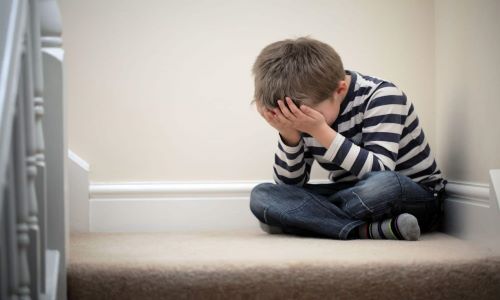The Silent Suffering: The Trauma of Childhood in Wartime
 By
By
Living in a country during times of war is an experience that leaves an indelible mark on the collective psyche of its inhabitants. While adults bear the burden of the physical and emotional toll, children, in particular, are often overlooked victims of the trauma associated with conflict. The impact of war on the mental health and well-being of children is profound, shaping their lives in ways that extend far beyond the battlefield. This article explores the trauma of living in a war-torn country and its enduring effects on the vulnerable minds of children. The Fragile Minds of Children Children, with their innocent minds and malleable emotions, are acutely sensitive to their surroundings. War disrupts the stability and security that are fundamental to a child's healthy development. Constant exposure to violence, loss, and fear creates an environment that can have long-lasting consequences on their mental health. 1. Loss and Grief The loss of loved ones is an all-too-common experience during wartime. Children witness the death of family members, friends, and even classmates. This profound loss can lead to complicated grief, where the emotional pain becomes deeply ingrained in their consciousness, affecting their ability to form healthy relationships in the future. 2. Displacement and Disruption: War often forces families to flee their homes, leading to displacement and an unstable living environment. Children may find themselves in unfamiliar surroundings, separated from their extended families, friends, and familiar routines. This upheaval disrupts their sense of security and belonging, contributing to anxiety and a sense of isolation. 3. Witnessing Violence: Exposure to violence becomes an unfortunate norm for children in wartime. Whether it's witnessing bombings, gunfire, or the aftermath of an attack, the images etch themselves into the minds of young witnesses, leading to nightmares, flashbacks, and heightened anxiety. 4. Psychological Impact: The constant state of alertness and fear experienced during war can lead to various psychological issues in children. Conditions such as post-traumatic stress disorder (PTSD), depression, and anxiety become prevalent, hindering normal cognitive and emotional development. Long-Term Consequences The trauma inflicted on children during wartime doesn't dissipate with the end of hostilities. Instead, it often manifests in enduring consequences that shape their lives as they grow into adulthood. 1. Educational Impacts: Displacement and the destruction of infrastructure often disrupt the education system. Children miss out on crucial years of schooling, limiting their future prospects. 2. Interpersonal Challenges: Children who experience war often struggle to form and maintain healthy relationships. Trust issues, difficulty expressing emotions, and a heightened sense of vulnerability can hinder their ability to connect with others. 3. Emotional Regulation: The trauma of war can impact a child's emotional regulation, leading to impulsive behavior, anger issues, and difficulty coping with stress. These challenges may persist into adulthood, affecting their personal and professional lives. 4. Transmission of Trauma: Trauma experienced by one generation can be transmitted to the next. Children who grow up in a war-torn environment may carry the emotional scars of their parents, perpetuating a cycle of trauma that can be challenging to break. Conclusion The trauma of living in a country during a war is a burden carried not only by adults but also by the most vulnerable members of society—children. The scars left on their minds can endure for a lifetime, affecting their education, relationships, and overall well-being. It is imperative for communities, governments, and international organizations to recognize the unique needs of children in conflict zones and provide the necessary support and resources to help them heal and rebuild their lives. Only through concerted efforts can we hope to break the cycle of trauma and give war-affected children a chance at a brighter future.






